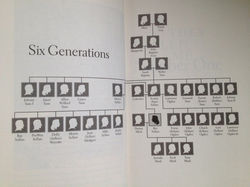
Cultural Genocide: The Hidden Chapter of Canadian History
Bev Sellars
 |  |
|---|---|
 |  |
Bev Sellars is a survivor of a residential school. She was born in Soda Creek, British Columbia in 1955. There she attended Saint Joseph residential school where the girls were not allowed to play or mix with the boys. Each student at the school was labeled with a number. Sellars was labeled number one from the girls' side. Also, she was among the many students/children who suffered through depression. She was sexually and mentally abused by the principal of the school. She and other children were also forced to do general labour. In addition, she was confined in a place which was isolated. These residential schools created a separation system. Children were separated from their parents, not allowed to speak their nation's language, forbidden from oral and other traditions. Hence, Bev and others who became victims lived in fear. They dared not to speak because if they did then they were beaten or even starved to death. There was 30-40% mortality rate in these schools. Thus, she tried to kill herself at the age of seventeen by overdosing on sleeping pills. But, she survived and continued to live normally.
Bev Sellars describes prisons as an another form of residential schools in her memoir, They Called me Number One. The title of her book defines the number that she was given at her residential school. She did her undergrad degree at the University of Victoria in History and later graduated from UBC Law school.
However, the negative impacts of Indian Residential Schools from the survivors were passed down to their children. This is known as intergenerational trauma. These are indirectly impacted and so becomes victims of the residential schools. They do not know how to succeed in life since there was no proper guiding or parenting provided to these children. Their parents were affected by the residential schools who were internally broken. As a result, many of the victims adapted to do drugs and went off the track in their lives. This continues to happen today. But, it needs to stop and needs to be fixed in one way or another.
An official appology was made to IRS surviviors in 2008 by the 28th prime minister of Canada, Stephen Harper. But did this appology bring Indigenous nations back together? Were the communities placed back in a way theu were before residential schools? Most of all, was the federal government's appology accepcted by the Aboroginal communities?
Richard Wagamese
"I have learned in my time here
that we are born covered in things
like love and trust and loyalty
humility and hope and kindness
and that sometimes the world
has a way of rinsing those things off us
so we stand naked and crying again
but at that very moment
when we want it the most
Creator allows us to find a way
to re-cover ourselves
in those spiritual qualities
so don't be afraid to fall
it's how we learned to walk
in the first place" ( Runaway Dreams, pg. 128)
Wagamese is an Anishinaabe/Ojibwe writer and storyteller. He has written many novels and articles and became the "first Native Canadian to win a National Newspaper Award for Column Writing in 1991" (Wagamese). In one of his articles, "Returning to Harmony", he discusses his experience as being a victim of residential schools. Richard Wagamese tells Canadians about the anger and resentment that he carries with him as an intergenerational victim (161). He further states that he was able to surrender his anger and learned how to "move forward and...leave hurt behind" (161, 165).
He is an author who writes about healing and forgiveness. He has shared his personal story of as being a victim. Thus he asks his self-questions about how can one heal and forgive in order to move forward in life. I believe that one can start to heal upon sharing stories with other because when we share our problem(s) with someone else, usually a solution is created for the problem. Similarly, I believe that survivors must share their stories not only to educate the Canadians but also to create a proper relationship between the Canadians and the Indigenous communities.
* Click here to learn more about Richard Wagamese.
* Wagamese's Books: https://www.google.ca/search?q=richard+wagamese+books&oq=richard+wagamese+books&aqs=chrome..69i57j69i60l3j0.5333j0j9&sourceid=chrome&ie=UTF-8
